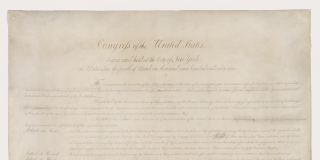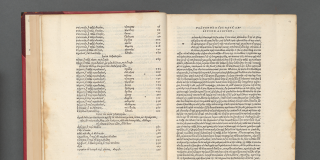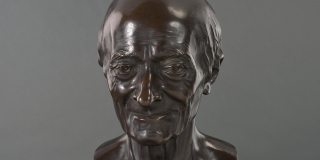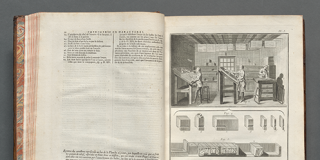
Beginnings
The works featured in this section represent beginnings of one kind or another—efforts to advance knowledge and promote progress, often in the face of adversity. Many have their origins in the 18th-century movement known as the Enlightenment and were shaped by the ideas of a group of French intellectuals known as the Encyclopédistes. Their philosophy was characterized by a rejection of superstitious ways of thinking in favor of reason, rationality, and the organization of knowledge. The wide dissemination of their work led to revolutionary changes in society, and their republican ideals heavily influenced the framers of the Declaration of Independence and the Constitution of the United States of America.
Yet there is a paradox at the heart of Enlightenment thought. “The Age of Reason” coincided with the rapid expansion of slavery across the globe, and some of the most celebrated thinkers of the era promoted pseudo-scientific notions of racial hierarchy and difference that justified and perpetuated oppression in the centuries that followed. And it has taken many years of agitation and sacrifice to more fully realize the ideals of democracy and liberty espoused in America’s founding documents—a goal of universal equality that, 250 years later, we still have yet to attain. Progress is difficult to measure, and is sometimes imperfectly achieved, but it is an ideal worth fighting for.
Please note when viewing in the gallery: some items listed here as "on view" have undergone page changes, or have been replaced by similar works from the same series, to preserve and maintain the valued artifacts in accordance with conservation guidelines.






